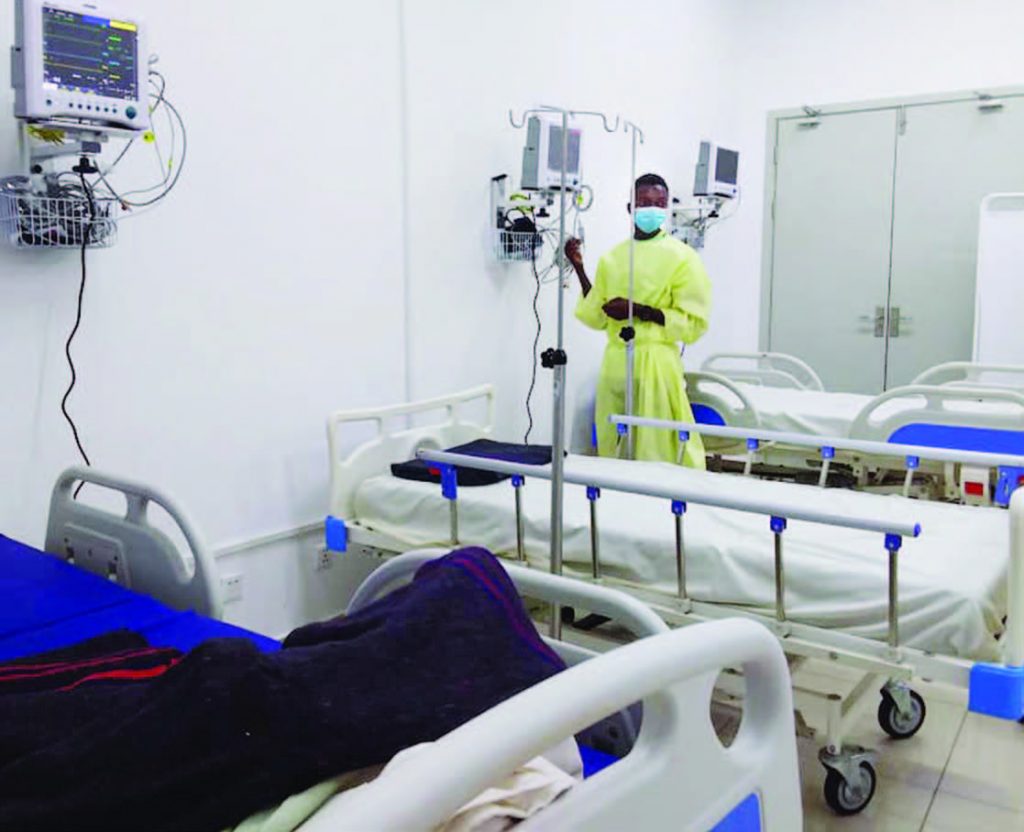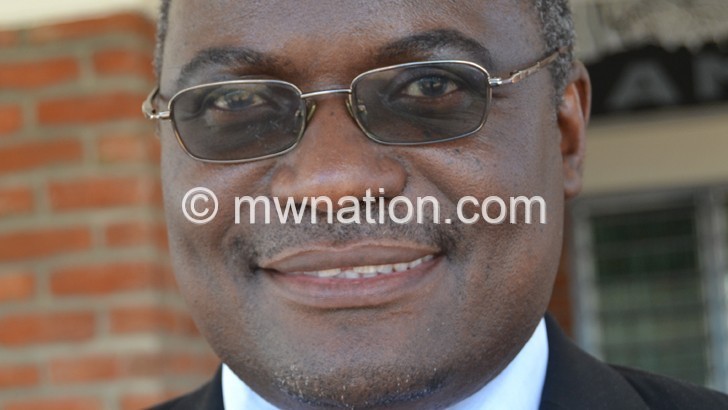Govt scales up covid-19 fight
Ministry of Health (MoH) says it has scaled up efforts through resource mobilisation to minimise the impact of the third wave of Covid-19 pandemic in the country.
In a telephone interview yesterday, MoH Principal Secretary Dr. Charles Mwansambo said his ministry has to date engaged numerous stakeholders to ensure availability of essential medical supplies, including oxygen.

He said: “We are doing the best we can to create space and get extra resources. We have engaged various stakeholders, including the Global Fund who are helping us purchase gas from Afrox Limited and Industrial Gases in Lilongwe.”
While indicating that district hospitals can easily access the gas, Mwansambo said the ministry has also ensured that gas plants at the country’s major referral hospitals are up and running to ensure timely availability of oxygen nationwide.
The ministry’s state of preparedness update comes against a background of assessment reports by the Medical Council of Malawi, World Health Organisation, MoH itself as well as The Nation investigation which revealed critical shortages of equipment, essential drugs, treatment centres and personnel.

But Mwansambo yesterday said the ministry floated tenders on provision of medical supplies and equipment adding that some suppliers have since done the best they can by delivering early while others are yet to make the deliveries.
He said hospitals are able to accommodate Covid-19 patients in designated wards while some are opening up other sections to complement space.
Mwansambo cited the situation at Kamuzu Central Hospital in Lilongwe where an additional ward has been created in the Eye Department.
To ease congestion in public hospitals which were overwhelmed during the second wave earlier this year, government set up a 300-bed capacity Covid-19 field hospital at Bingu National Stadium in Lilongwe. Similar facilities were also set up at the Blantyre Youth Centre, Mzuzu and Zomba where the State House was turned into a field hospital.
On whether field hospitals will be reopened, Mwansambo said since public hospitals are able to accommodate Covid-19 cases, the facilities would remain as they are.
However, he said: “If there is need, then we will reopen them.”
In a separate telephone interview yesterday, Society of Medical Doctors president Dr. Victor Mithi hailed the government for the third wave preparations which he described as better than before.
He said: “I would say the level of preparedness now is much better than before because the systems that have been put in place seem to be working so far.
“We have also noted that there is adequate life-saving equipment although we cannot really say that everything is enough.”
But Mithi said it would be better if the field hospitals could open now instead of waiting for a time when things get out of hand.
On his part, Health and Rights Education Programme executive director Maziko Matemba said the issue of bed space still remains critical in most facilities; hence, the reopening of field hospitals at this point would be important.
He also said what is important is to ensure that district hospitals are empowered with enough resources that would enable them easily get oxygen at the central hospitals
“We will also need resources to maintain these gas plants because this is a serious thing we are dealing with as a country,” said Matemba.
During the second wave early this year, Malawi was caught napping with public hospitals overwhelmed to handle cases, prompting private citizens’ initiatives to mobilise funds for procurement of essentials such as oxygen, oxygen cylinders, patient monitors and flow meters.
Last week, Presidential Task Force on Covid-19 co-chairperson Dr. Wilfred Chalamira Nkhoma said the MoH would decide on whether the field hospitals should reopen.
Meanwhile, the country is expected to receive additional doses of Covid-19 vaccines by different donors.
The doses are expected to come at a time when a majority 385 242 people have taken the first dose of the vaccines and only 43 165 have taken the second dose.
But while stressing that priority will still be given to health care workers and people with underlying conditions, Mwansambo said the country is expected to receive enough vaccines in excess of one million doses within a four to six weeks period.
He said that apart from the Oxford-AstraZeneca vaccine, the country will also get the Pitzer/Binotec and Johnson & Johnson vaccines.
Malawi ran out of Covid-19 vaccines mid-last month after depletion of the initial 512 000 jabs donated by well-wishers, including the Covax Facility—a multi-donor initiative which procured drugs for poor countries.
On Thursday last week, the much awaited 192 000 doses of the AstraZeneca vaccine failed to arrive due to logistical challenges.





